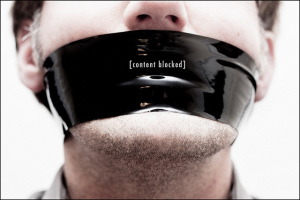 Lists of stupid laws are lots of fun, when they don’t really touch your life.
Lists of stupid laws are lots of fun, when they don’t really touch your life.
But the law that gags mortgage lenders after bankruptcy isn’t funny.
Preventing lenders from sending mortgage statements to homeowners after bankruptcy just sets families up for foreclosure and rewards servicers with the fees that follow default.
It’s just a stupid result that no one has fixed.
Bankruptcy laws collide
Two clients this week weren’t laughing when two different bankruptcy laws collided:
One law says that the lender’s lien on your home remains enforceable after bankruptcy.
The second law prohibits efforts to collect a debt after bankruptcy.
The survival of the lien after bankruptcy protects the secured lender; the injunction against post bankruptcy collection protects the debtor.
But what if the debtor wants, and needs, to continuing paying? The intersection of these two provisions thwarts both.
In one case of mine, Bank of America “service reps” refused to tell a Chapter 13 debtor how much she had to pay to bring her mortgage current.
They were willing, apparently, to foreclose on the house, but insisted that bankruptcy law prevented them from telling her how big the check needed to be to keep her house.
In the second case, my client got his bankruptcy discharge and concluded that when the lender didn’t resume sending mortgage statements, the debt secured by his home was discharged. They were willing to send a letter telling him foreclosure was possible, but not a statement reminding him what to pay to stay out of foreclosure.
Liens survive bankruptcy
A central holding of bankruptcy law say: the bankruptcy discharge eliminates the ability of a creditor to sue you personally for a debt discharged in bankruptcy.
The discharge does not wipe out the lien on any property subject to the lien. The lien holder can forclose on the collateral after bankruptcy, but that’s it.
Put another way, the discharge protects people, but not property.
Automatic stay stops statements
The stay forbids creditors from any effort to collect their debt, including sending bills or continuing foreclosure.
At the end of the case, the stay is replaced by the discharge, another injunction that prohibits collection.
So while the mortgage lien survives as a charge on the debtor’s home, the lender may not be able to send a written statement telling the debtor how much is due to keep the debt on the house current.
What’s wrong with this picture?
This legal train-wreck has no neat and immediate solution.
Consumer Financial Protection Bureau unable to write servicing rule on point
Those filing bankruptcy must anticipate that their secured lenders will stop sending statements. The absence of statements does not mean that the bankruptcy has wiped out the creditor’s lien.
Debtors and their attorneys can seek agreements from lenders that monthly statements are permissible despite the stay and later the discharge.
Courts, with general orders and language in the discharge, can make clear that mortgage statements sent after the discharge don’t violate bankruptcy law.
Congress could help with an amendment that protects lenders who send post bankruptcy statements on secured debt that survives the bankruptcy.
More
Before you list your house for sale
Make the loan servicer tell all
Image courtesy of Brian J. Matis





